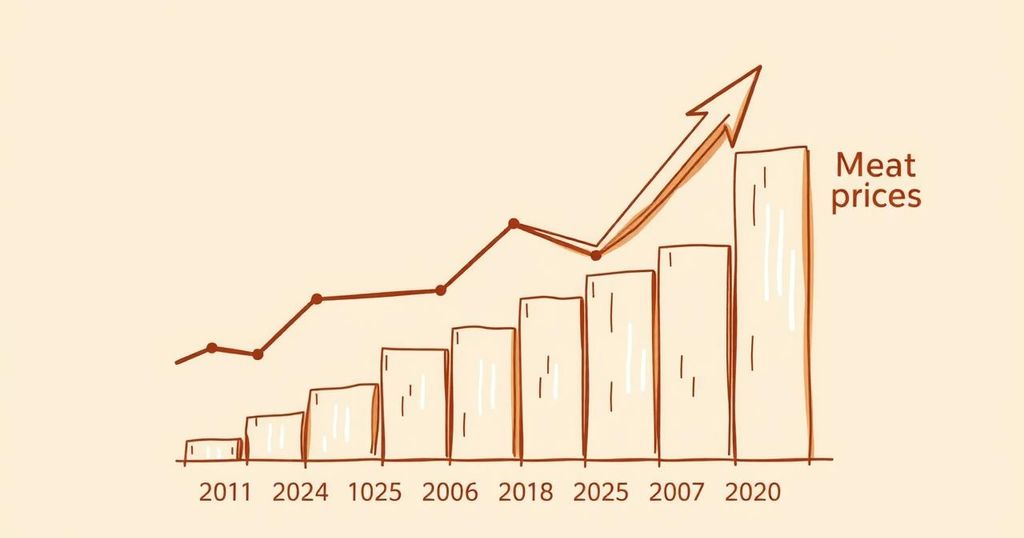Meat prices in Uzbekistan are higher than in other CIS countries, with beef costing 8.1 USD per kilogram. Factors contributing to this include supply chain issues, increased feed and production costs, and high domestic demand. Meanwhile, global meat prices are rising, impacting consumer purchasing power and necessitating measures to enhance food security in Uzbekistan.
Meat prices in Uzbekistan are significantly elevated compared to its neighboring CIS countries. According to Numbeo, the cost of 1 kilogram of beef in Uzbekistan reaches 8.1 USD, surpassing prices in Kazakhstan, Russia, Kyrgyzstan, and Tajikistan. The fluctuations in the food market and ongoing economic dynamics within Uzbekistan likely contribute to these higher prices.
Globally, Switzerland holds the title for the highest beef prices at 44.3 USD per kilogram. Other countries, such as Iceland and South Korea, also feature high prices, at 38.7 and 28 USD, respectively. Conversely, nations like Pakistan, Nigeria, and Ghana offer significantly lower prices, with beef costing 4.04 USD, 4.50 USD, and 4.78 USD, respectively. Within the CIS, prices in Kazakhstan and Russia range from 6 to 7 USD, indicating more competitive meat pricing.
Several factors contribute to the heightened meat prices in Uzbekistan. Key issues include supply chain obstacles, such as elevated transportation costs, rising feed prices for livestock, and substantial slaughter and production expenses. Additionally, import restrictions coupled with high domestic demand further exacerbate the situation, driving market prices upwards.
Over the past year, global meat prices have risen by 18%, while Uzbekistan has experienced a 14.4% increase. Specific categories of meat, such as bone-in beef and mutton, have risen by 18.5% and 19.4%, respectively; poultry, in contrast, has seen a slight decrease in price.
As meat prices increase, the purchasing power of consumers diminishes, prompting many to seek more affordable alternatives, such as poultry and other substitute products. The challenges concerning meat pricing in Uzbekistan highlight the need for strategic actions to enhance food security, including the development of the livestock sector, alleviating feed shortages, and refining import procedures.
Uzbekistan’s elevated meat prices can be attributed to various economic factors, including supply chain issues, rising costs in livestock production, and high consumer demand. The situation has a detrimental effect on the purchasing capacity of consumers, compelling them to opt for more cost-effective alternatives. To safeguard food security and stabilize prices, strategic development in the livestock sector and import optimization is essential.
Original Source: zamin.uz




